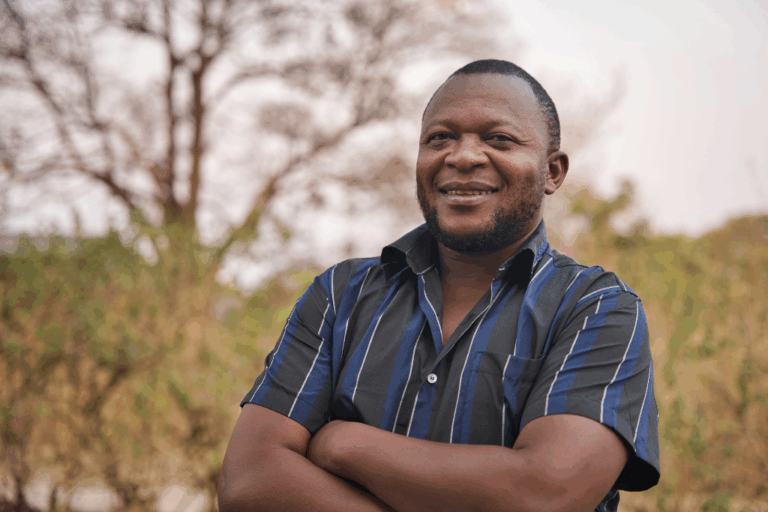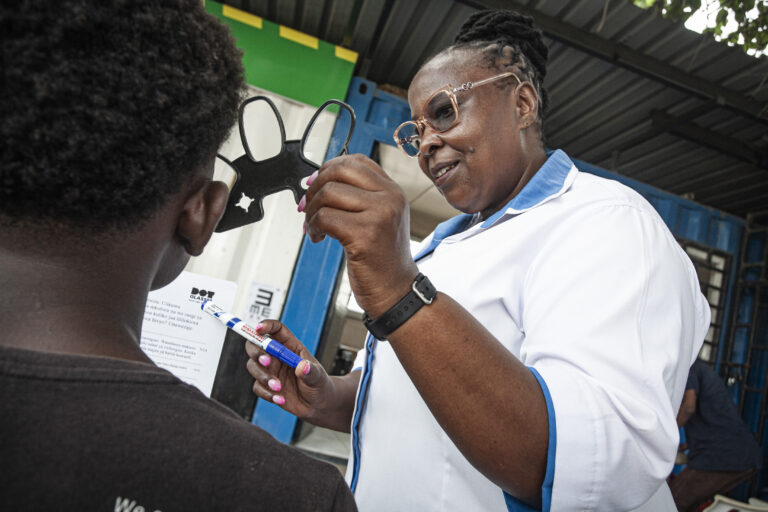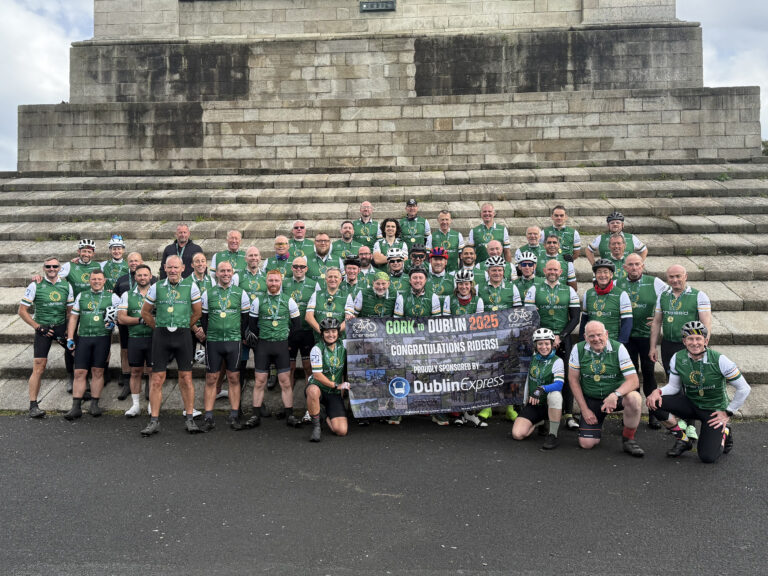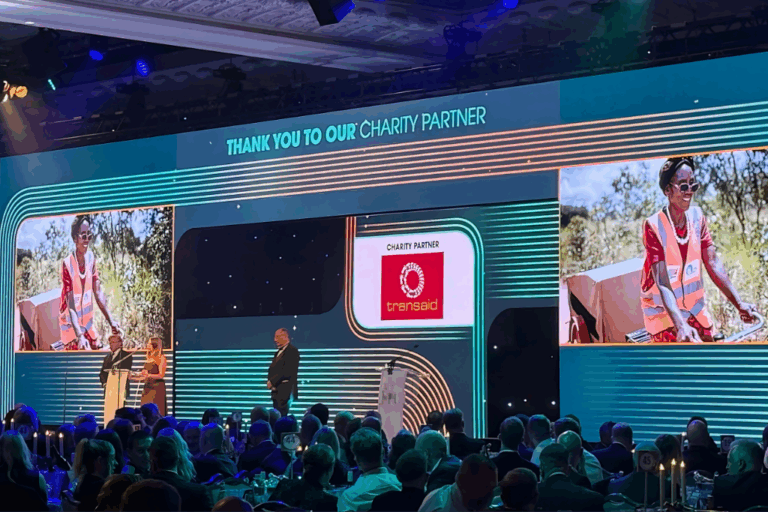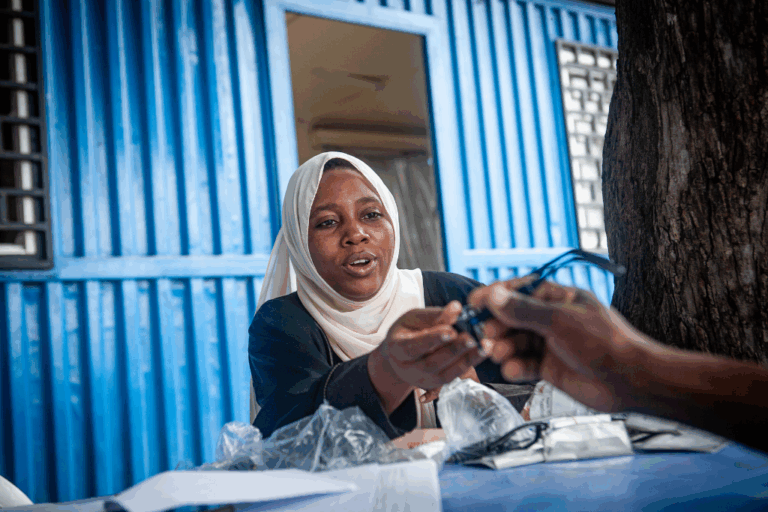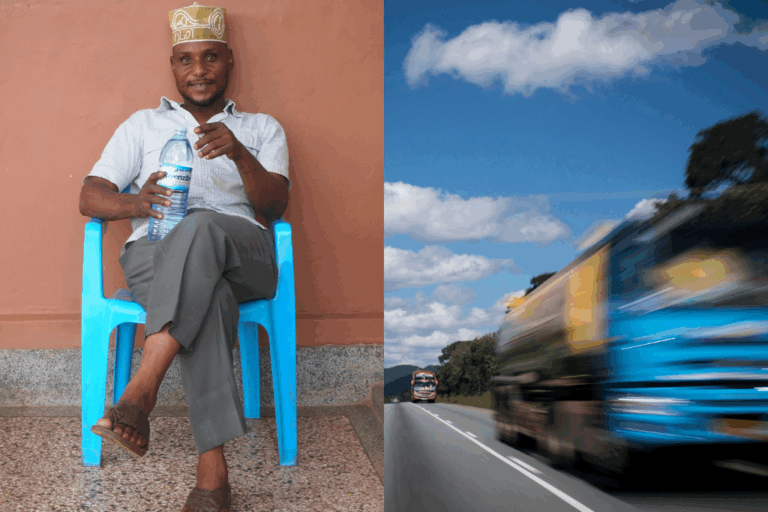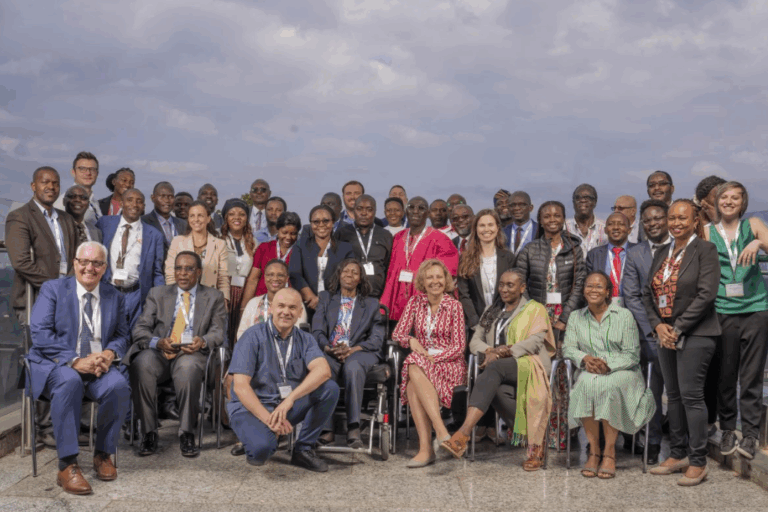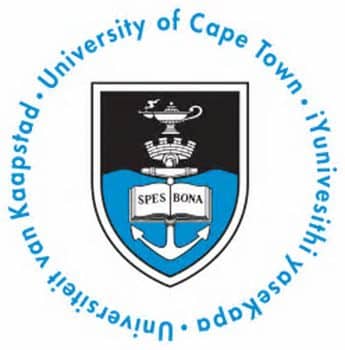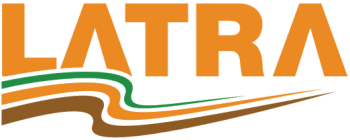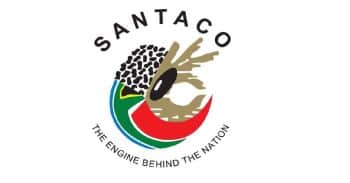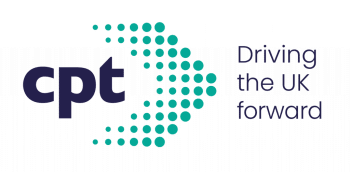
News
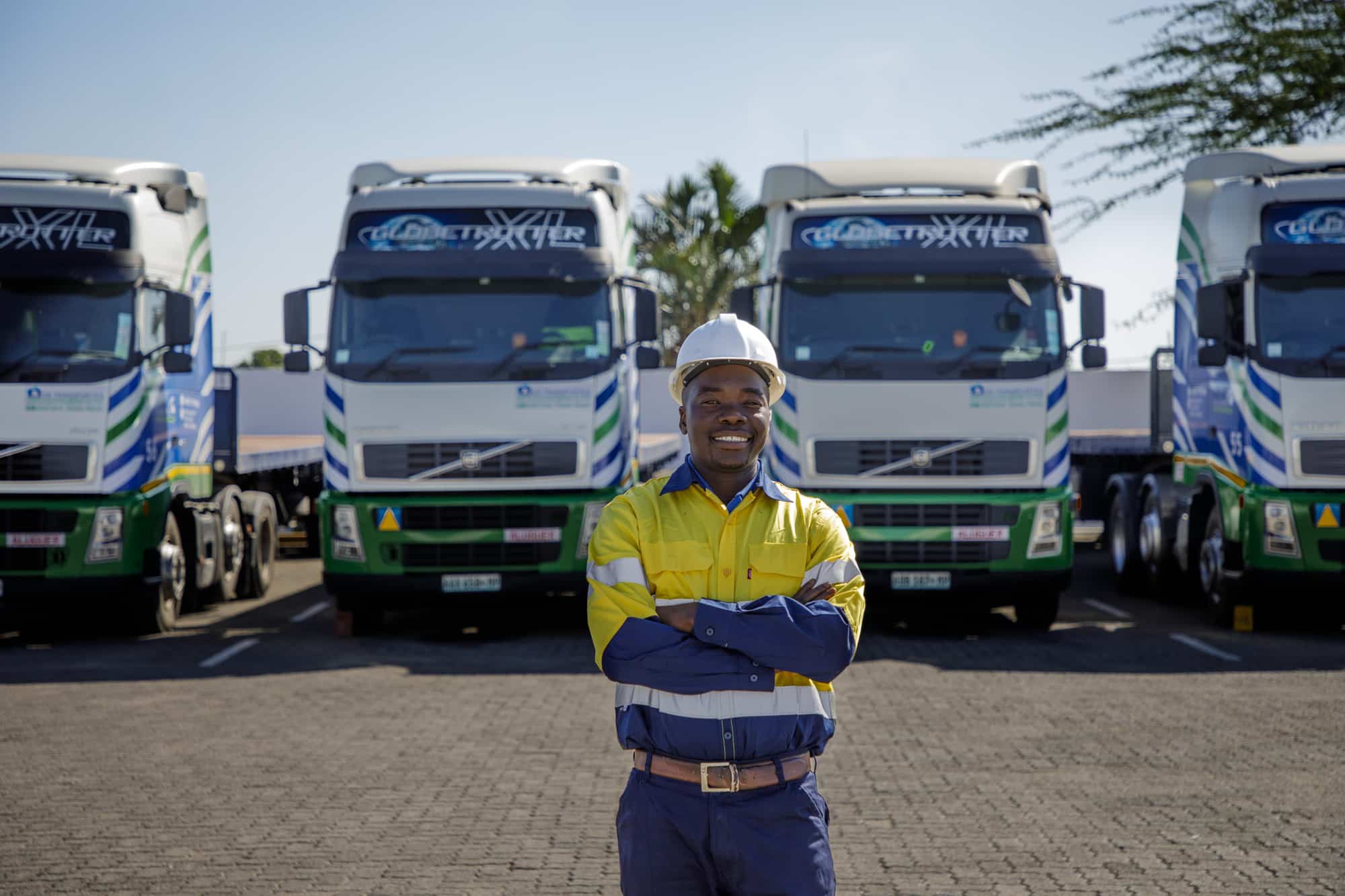
Fani Evans’ story
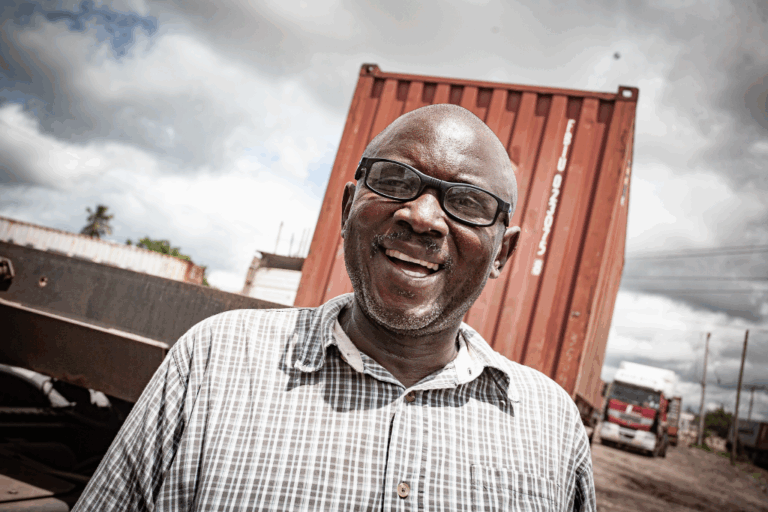
The Northern Corridor
Stretching more than 1,700 kilometres west from Mombasa, the Northern Corridor is a vital artery for regional economic integration across East and Central Africa. It enables the movement of goods between Kenya and several landlocked countries, including Uganda, Rwanda, South Sudan, Burundi, and the Democratic Republic of Congo. Serving as the eastern gateway to the corridor, the Port of Mombasa handles over 70% of the region’s cargo, around 35 million metric tonnes each year.
High freight volumes and reliance on long-distance road transport along the corridor present health and safety risks, especially for drivers and roadside communities. According to the National Transport and Safety Authority road traffic fatalities along the corridor rose by 64% between 2019 and 2020, while the World Health Organization (2023) identifies traffic crashes as the leading cause of death among individuals aged 15 to 29 years in sub-Saharan Africa, hitting one of the most economically active groups hardest.
The safety and wellbeing of professional drivers are central to improving road safety. For over two decades, Transaid and its partners have worked to strengthen this link, promoting driver health, and reducing the perceived and real barriers to accessing healthcare services. Transaid’s long-standing presence in the region has fostered trust and strengthened ties with the transport sector, enabling it to support transporters and their drivers, and respond quickly to new and emerging health and safety challenges.
The Madereva Zaidi Salama project
Between October 2024 and March 2025, with support from the Lloyd’s Register Foundation, Transaid partnered with North Star Alliance to deliver targeted road safety and health information to professional truck drivers. Consultations with Kenyan transporters and input from Transaid’s UK supporter network informed the creation of two driver-focused factsheets. The first promoted HIV/AIDS testing, treatment, and counselling available through North Star Alliance, while the second addressed cargo security, building on lessons from a similar initiative launched at the start of the COVID-19 pandemic. In just over three months, more than 1,700 factsheets in Swahili and English were distributed in print, with a further 4,000 shared via WhatsApp.
During the same period, footfall at two North Star Alliance Wellness Centres increased by 104% and 108% respectively. These centres provide primary health care services for truck drivers and the communities they engage with offering screenings for non-communicable diseases such as diabetes, hypertension, and cardiovascular conditions.
During this outreach, many drivers reported eyesight problems and irritation caused by long hours behind the wheel. Less than two months later, with support from the Gibbs and Morel Family Trusts, Transaid, in partnership with North Star Alliance, launched a second initiative to provide eye health screenings. A total 4,107 drivers and residents of roadside communities were screened, of which 971 (24%) were prescribed glasses and 110 (3%) were referred to a specialist clinic for further evaluation and treatment.
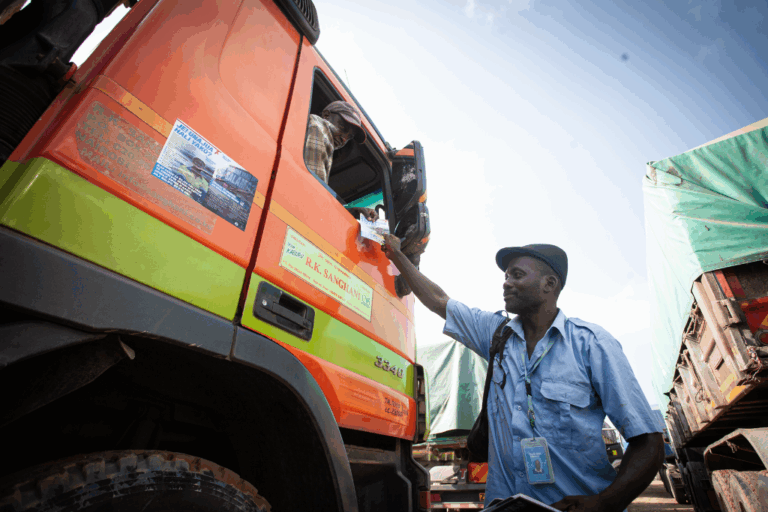
Fani Evans’ story
Many of the prescribed corrective lenses addressed near-vision issues, reflecting a common difficulty with reading and other close-range tasks. One of the recipients was 48-year-old Fani Evans, a truck driver with more than twenty years’ experience. Over time, he has changed employers and advanced in his career, taking on heavier cargo over longer routes. Based in eastern Kenya, he now regularly hauls 40-foot container consignments from Mombasa along the Corridor, delivering to the landlocked hinterlands in the west.
It was along this route that Fani first encountered North Star Alliance’s Wellness Centres. “I recognised the Blue Boxes from the roadside, but the first one I entered inside was at the port gate. The health services they offer us drivers are very good. Without them, we would go without.”
North Star Alliance operates eight roadside wellness centres across Kenya, providing essential primary healthcare services to professional drivers and the communities they interact with. Strategically positioned near truck parks and fuel stops the centres offer a range of primary healthcare services, including screening and support for non-communicable diseases like diabetes and hypertension, which are increasingly affecting long-distance drivers.
It was at one of these overnight stops that Fani learnt that the nearby wellness centre was offering drivers free eye tests.
“I stepped out of my cab in the morning and saw my friend, also a driver. He was wearing glasses and I know normally he is without them. He told me to go to North Star to have my eyes checked. He told me if I need glasses, I can collect them immediately. I didn’t waste time!”
Using an innovative system from start-up DOT Glasses, clinicians at two Wellness Centres were trained to conduct eye health assessments in pop-up consultation rooms. DOT Glasses’ modular design allows frames and lenses to be clipped together based on the patient’s prescription and fit. If the correct prescription is in stock, patients receive their glasses on the spot. Those requiring prescriptions not available on-site could collect their glasses at another Wellness Centre further along their route.
Fani’s eye test revealed mild long-sightedness, and glasses would improve his ability to read, reducing strain and fatigue.
“I always held the newspaper far in front of me. So, I can’t read the documentation that goes with the cargo.” He jokes referencing his ‘old age’ before adding, “that’s a problem – I can’t complete the job, I have to have others help me. I travel to many countries and have to force myself to trust people I’ve never met. Now with these glasses, I can check the documents myself. That has more security.”
Download Fani Evans’ story as a PDF.
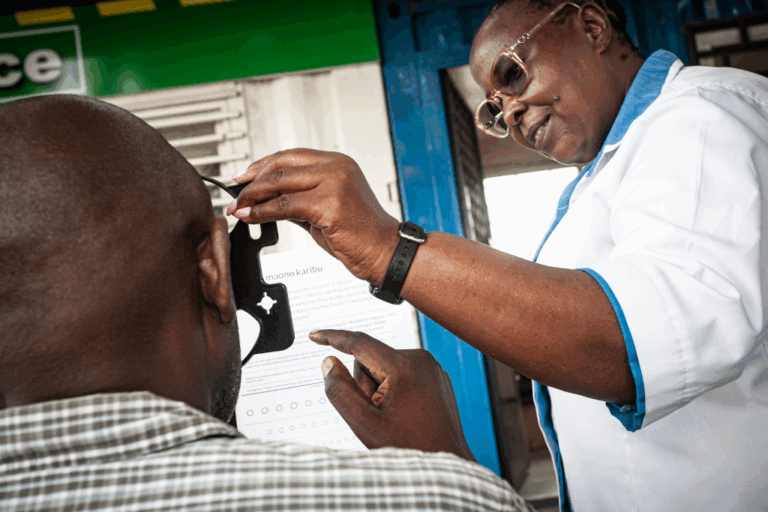
Recent Posts



